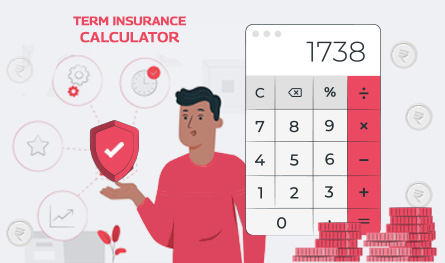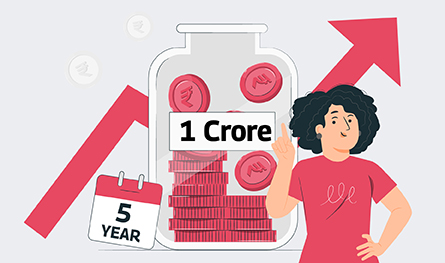What is Life Insurance Death Benefits-A Complete Guide 2025
.png)
LIC continues to be the most credible insurance provider in India, securing the financial future of millions of Indians. One of the significant benefits of LIC policies is the ‘Death Benefit’, which secures the lives of the policyholder’s family members by providing them with a financial hand. Let us discuss the life insurance death benefit in detail in this post.
.png)
The death benefit is one of the advantages offered under life insurance policies, which supports beneficiaries of the plan with monetary assistance in the absence of the policyholder. In India, life insurance plans are regarded as the most reliable and preferred means to support families financially. The death insurance coverage offered by life insurance companies is received by the nominee of the policy in the event of the sudden death of the policyholder during the policy tenure. This amount received by the beneficiary can be used to cover expenses in the future for the education of children, their marriages, any unpaid loans/debts, etc. Thus, the death benefit helps replace the lost income due to the death of the policyholder. Let’s understand the term better.
What Is a Death Benefit Under Life Insurance?
Death benefit means the guaranteed returns received by nominees of life insurance plans in the event of the sudden demise of the policyholder. So, if the policyholder dies during the policy term, the insurance company pays the death benefit to the nominee within 30 days of filing the death claim. The nominee can seek the payout as a single lump sum pay, or they can choose to receive it as regular monthly pay in installments over a period of time.
Conditions Under Which Life Insurance Death Benefit Is Covered
Before buying a life insurance plan or before raising a life insurance claim, it is important to understand the situations or the scenario in which the sum assured is paid to the nominee of a policyholder as the death benefit. Thus, you need to know the circumstances under which your life insurance policy pays a death benefit to the beneficiary.
- If the policyholder dies due to deteriorating health conditions or because of natural causes, the policy covers the death
- If the death of the insured is caused due to an accident, it is covered. However, the person should not have been intoxicated or under the influence of any abused substance at the time of the accident
- If the policyholder dies due to committing suicide after one year of buying the life insurance plan, it is covered, and the death benefit is paid to the nominee. However, if the insured commits suicide within one year of purchasing the plan, the claim of death will not be accepted by the insurance company
Conditions Under Which Life Insurance Death Benefit Is Not Covered
The term/life insurance plan might not provide coverage when the policyholder’s demise happens under some specific circumstances. Here are a few such situations:
- As already discussed, if the insured dies due to suicide within one year of purchasing the policy, no death benefit is paid
- If the insured dies due to any hazardous activities or self-caused injuries, the death is not covered either
- If the demise of the insured takes place due to any sexually transmitted diseases (STDs) like AIDS, it is not covered
- If the death is caused due to use of intoxicating substances like alcohol or drugs, no death benefit is paid
- If the cause of the death is a natural disaster such as earthquake, flood, etc., it is not covered
Tax Benefits on Life Insurance Death Benefit Amount
The death benefit received by the nominee of a policy is entirely tax-free. Under section 10(10D) of the Income Tax Act, 1961, both the sum assured received as death benefit along with bonuses (if any) received by the nominee at the time of death of the policyholder is considered a tax-free amount and no tax is levied on it. Even the premium amount paid by the policyholder to avail the benefits of the policy offers a tax-savings option of up to INR 1.5 lakh under section 80C of income tax.
How to Claim Life Insurance Death Benefit?
To claim death benefit after the demise of a life insurance policyholder, you need to follow the below steps:
1. Read the policy papers with utmost care:
The first and foremost thing to do is to read the policy document carefully and see if the cause of the death of the policyholder is covered under the plan. Only then does the nominee become eligible to claim the death benefit. Make sure to go through the list of exclusions. Also, check if the policy is active with regular payment of premiums being done.
2. Inform the insurer about the demise:
The second step is to inform the insurance company about the death as early as possible. Once notified, the insurer is expected to settle the claim within 30 days. Thus, the earlier you inform the insurer, the sooner you will receive the payout.
3. Submit the intimation application:
To raise the death benefit claim, the nominee has to fill out a claim intimation form and submit it to the insurer after informing them about the demise of the policyholder. You can visit a branch of the company near you or do it online by logging in to the official website of the policyholder.
4. Gather the required documents:
The insurance company might require some documents to proceed with the claim. Ask for the relevant documents, collect them, and submit them to the insurer. Along with these documents, you also need to submit the original policy paper. Here is a list of the documents you need to submit:
- Original policy document
- Death certificate
- ID proof of nominee
- Age proof of policyholder
- Medical certificate
- Certificate of cremation
- Hospital records
In case the death of the policyholder was unnatural due to accidents, etc., you might also require the following;
- A copy of FIR
- Post Mortem report
5. Receive the payout:
In this step, the policyholder will receive the payout from the insurer. The terms and conditions of receiving a payout can be chosen by the policyholder at the time of buying the policy. The nominee can get the payout as a lump sum pay or as regular monthly installments.
A death benefit in life insurance is a payout received by the beneficiary of a life insurance policy as a lump sum amount, annuity, or pension after the death of the annuitant.
The amount received as a death benefit under life insurance depends on the sum insured of the policy. However, if you have availed of any loans/withdrawals under your policy that are still due, it will be subtracted from the death benefit.
After the demise of the policyholder, the life insurance company pays out a death benefit to the beneficiary or beneficiaries named under the policy.
The nominee or beneficiary of the policy claims the death benefit under a life insurance policy in India.

Author Bio
Paybima Team
Paybima is an Indian insurance aggregator on a mission to make insurance simple for people. Paybima is the Digital arm of the already established and trusted Mahindra Insurance Brokers Ltd., a reputed name in the insurance broking industry with 17 years of experience. Paybima promises you the easy-to-access online platform to buy insurance policies, and also extend their unrelented assistance with all your policy related queries and services.
Other Life Insurance Products
Latest Post

Let’s be honest – life insurance planning isn’t exactly someone’s weekend hobby. It is the financial equivalent of flossing: we understand its importance, but we tend to put it off. But somewhere between balancing work and life, you might realise you need to have a solid plan in place – just in case.


If you think of life insurance, chances are you are picturing something people buy in their 30s or 40s. But what if you are 65 or older and just getting started? The good news is that you are never too late. Whether you are thinking of easing the financial burden on your family, covering final expenses, or simply leaving behind a legacy, there are life insurance options tailored just for you.
This article will be a guide to life insurance for senior citizens above 65 years, explaining why it is important, the type of insurance options, and how to get the right policy for you.


Health insurance plans are purchased with the hope of medical protection in times of need. However, sometimes it ends up being a source of surprise and disappointment. This mostly happens when people rush to buy health insurance plans, often overlooking essential aspects. Ignoring waiting period clauses, misunderstanding exclusions, and being unaware of sub-limits can lead to unwanted problems in the future.


If you are looking at investment policies offering INR 1 Crore in 5 years, we talk about some excellent plans in this post to help you choose the best one and reach your goal. However, it is important not to get swayed. Doing proper research and taking advice from financial or insurance advisors is important. Learn about such investment plan in this post.

The last few years have made it very clear that having health insurance is essential for everyone. Whether you are a young professional or a senior citizen, are single or have a family to support, health insurance cannot be ignored. Keeping this in mind, health insurance companies offer comprehensive plans that suit people with varied insurance needs.




